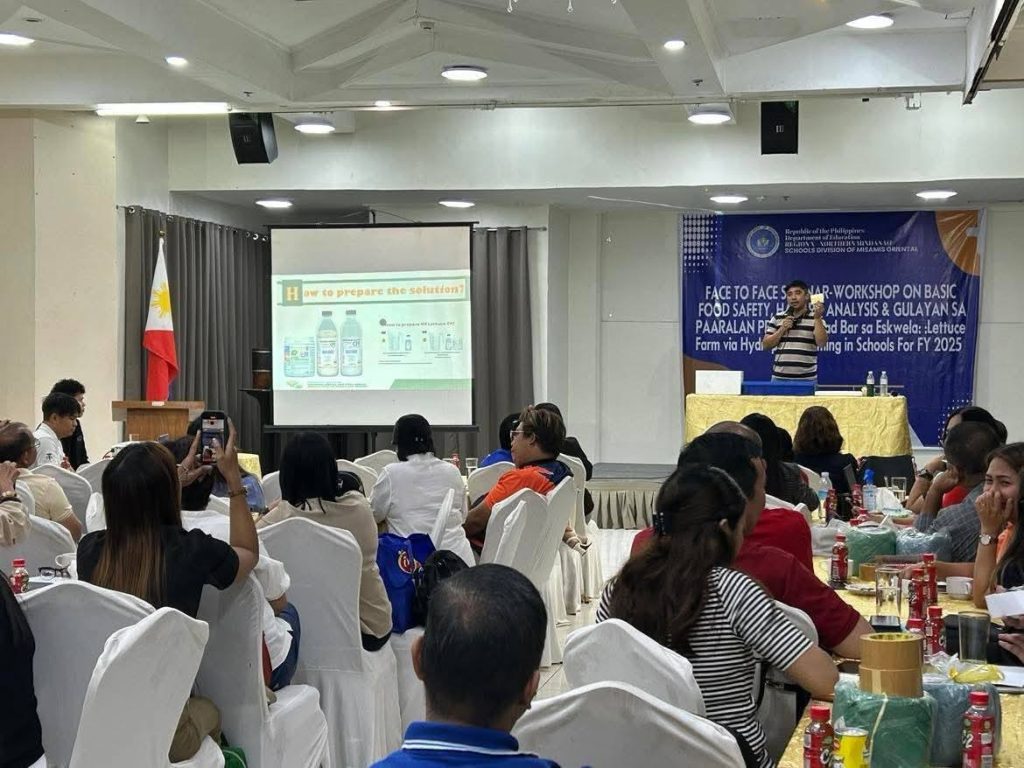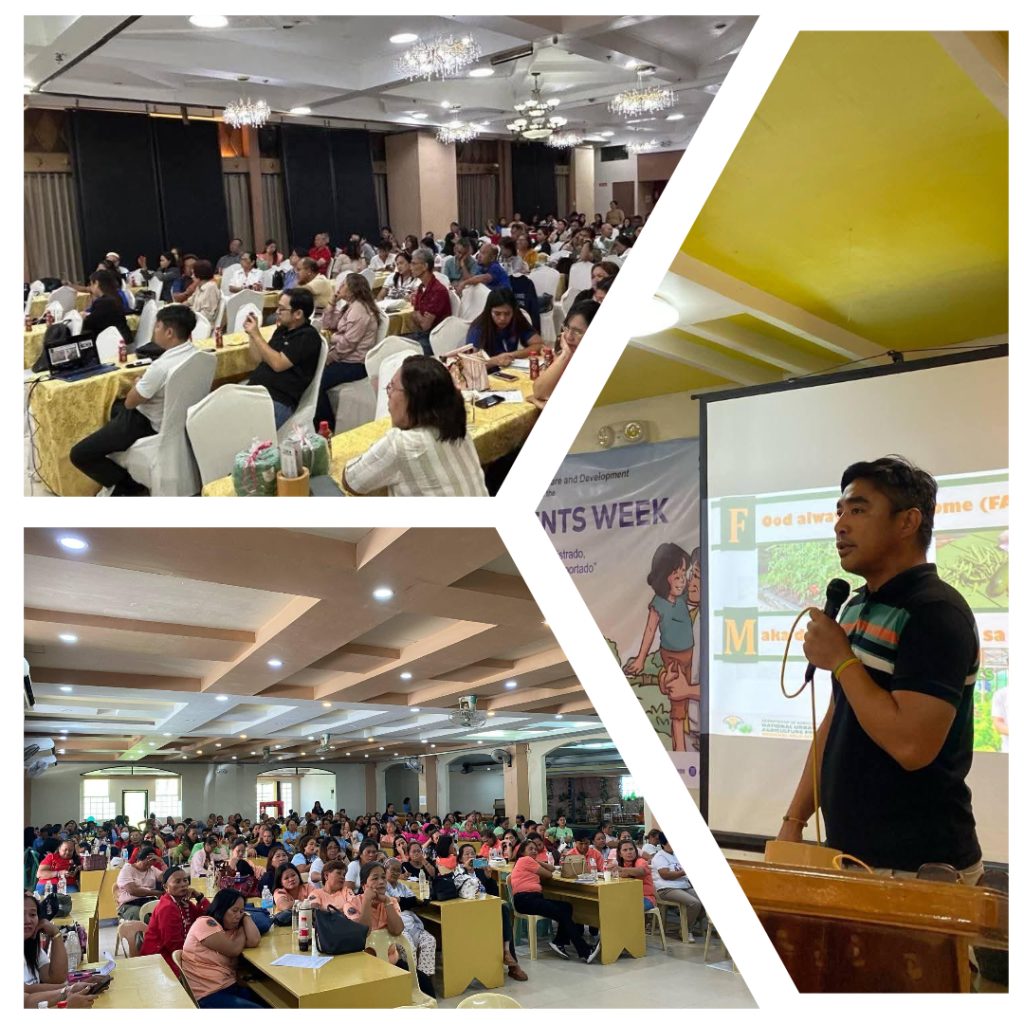
Agri-10 NUPAP supports sustainable agriculture initiative for schools and local communities
CAGAYAN DE ORO CITY – In an effort to promote sustainable agriculture and empower local communities, the Department of Agriculture – Regional Field Office 10 (DA-10), through its National Urban and Peri-Urban Agriculture Program (NUPAP), participated in an initiative focused on hydroponics farming and urban gardening held on April 24 to 25, here.
Serving as the resource person, NUPAP alternate focal person Ronald Allan P. Camaddo led a seminar-workshop on basic food safety, hazard analysis and critical control points, and the Gulayan sa Paaralan Project for SY 2024-2025. The event emphasized hydroponics as a sustainable alternative to conventional farming, highlighting its potential to minimize environmental impact, aid climate resilience (CEA), enhance food security, and improve food safety.

It was conducted in partnership with the Department of Education, which continues to promote the importance of school gardening in fostering environmental awareness and education. The initiative also encouraged the exchange of best practices and innovative approaches among school district supervisors, Gulayan sa Paaralan coordinators, and school nurses, strengthening partnerships and collaborations among stakeholders to support gardening activities.
Also supported by the DA-10 was the urban gardening orientation spearheaded by the City Social Welfare and Development Office. It provided an opportunity for solo parents in learning how to grow their own food in limited urban spaces.
The program given practical techniques and resources toward creating affordable and sustainable gardens, even in confined areas such as balconies, rooftops, or community gardens, to enable solo parents to boost their income, access to fresh and healthy food, contribute to solid waste management, and combat different diseases.
Both of the partner agencies’ initiatives are aligned with the DA-10’s growing movement toward sustainable, local food production and community empowerment in Northern Mindanao, particularly in urban and peri-urban settings.# (MAC)
